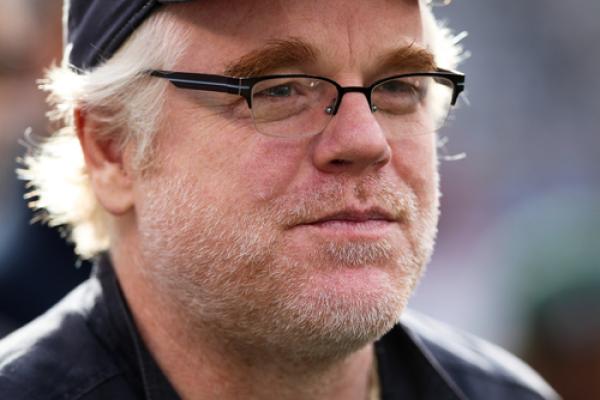Tom Junod of Esquire wrote an insightful piece about the death of Philip Seymour Hoffman titled “ Philip Seymour Hoffman’s Final Secret: The cost of holding up a mirror to those who could barely stand to look at themselves .” The whole article is worth reading, but these words are especially important:
"There was no actor, in our time, who more ably suggested that each of us is the sum of our secrets … no actor who better let us know what he knew, which is that when each of us returns alone to our room, all bets are off. He used his approachability to play people who are unacceptable, especially to themselves; indeed, his whole career might be construed as a pre-emptive plea for forgiveness to those with the unfortunate job of cleaning up what he — and we — might leave behind."
In his roles, Hoffman played unacceptable, despicable, and broken characters. In other words, he played our cultural scapegoats. But the beauty of Hoffman’s work is that he humanized our scapegoats. Of course, his characters were unacceptable because they were guilty of being repellent jerks, underserving of love or sympathy, which is exactly why they made good scapegoats. The function of a scapegoat is to unite us in hatred against them, so the scapegoat who seems to us to be completely guilty, like a cartoon villain, the better sense of unity we can form against them. The best scapegoat is one who even agrees with us about just how terrible he is. As Junod writes, Hoffman “used his approachability to play people who are unacceptable, especially to themselves.”
Hoffman’s characters may have been unacceptable and guilty, but they were also complicated. No cartoon villains for Hoffman – he revealed the complex humanity of his characters. As despicable as many of his characters were, we could identify with them. And once we identify with the humanity of our scapegoats it becomes more difficult to believe in their absolute guilt and our absolute innocence. We couldn’t scapegoat Hoffman’s characters because, as Junod points out, they help us realize that “when each of us returns alone to our room, all bets are off.”
In humanizing his despicable characters, Hoffman humanized all of us, and he humanized himself. His broken characters held up a mirror to our own brokenness. A.O. Scott makes this observation in his New York Times article, “ An Actor Who Made Unhappiness a Joy to Watch” when he writes that Hoffman “did not care if we liked any of these sad specimens. The point was to make us believe them and to recognize in them – in him – a truth about ourselves that we might otherwise preferred to have avoid.”
What is the truth Hoffman revealed in his characters that we would prefer to avoid? He revealed the truth that our scapegoats are as human as we are. The druggies, the power hungry, the self-loathing, the smug, even the priest who is a potential pedophile, are more than their despicable qualities; they are broken human beings, just like the rest of us.
And there’s the truth we would rather avoid about our scapegoats. We would rather project our own brokenness and self-hatred upon them, and thus avoid taking responsibility for our own despicable qualities.
But on screen, Hoffman wouldn’t allow us to do that. Fortunately, we were watching and learning from his performances. We’ve had the same response to Hoffman’s death as we’ve had to his characters. While his tragic death from a drug overdose was entirely avoidable, no group is uniting against Hoffman. Quite the opposite. Hoffman died like one of his unacceptable characters, but the blogosphere hasn’t united by turning him into our latest cultural scapegoat. Rather, just like his characters, we’ve seen the complexity of his humanity. We have united in sorrow and compassion for his complicated life and his tragic death.
After any tragic death, we are left with questions. Why did he die? Was it due to drug addiction? Was it the cost of celebrity and fame? Did he think his only value as a human being came from being an actor? Did he absorb too much of his self-loathing characters? We may never know, and answers to those questions won’t bring him back to the big screen or to his family.
Even so, Hoffman gave us an invaluable gift. He revealed to us the humanity of our scapegoats. We couldn’t unite in hatred against his characters because they were complicated; indeed, because they were human. The most important role that Philip Seymour Hoffman played was to help change the way we relate to our scapegoats. In revealing the humanity of our scapegoats, Hoffman made it much more difficult for us to unite against them.
What’s the alternative to uniting against a scapegoat? Hoffman pointed to the answer: to recognize our own broken humanity and respond to our cultural scapegoats not by uniting in hate against them, but by uniting with compassion, pre-emptive forgiveness, and love.
Adam Ericksen blogs at the Raven Foundation, where he uses mimetic theory to provide social commentary on religion, politics, and pop culture. Follow Adam on Twitter @adamericksen.
Image: Philip Seymour Hoffman at a football game in 2011, Debby Wong / Shutterstock.com
Got something to say about what you're reading? We value your feedback!
